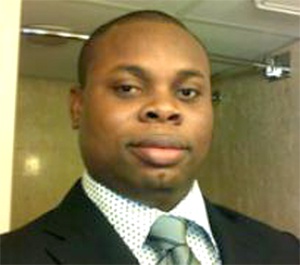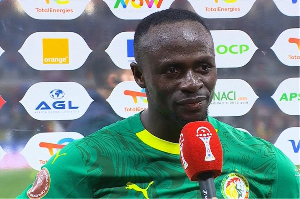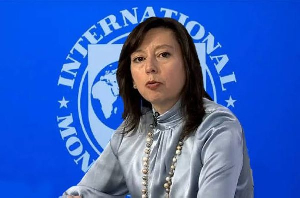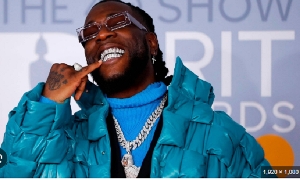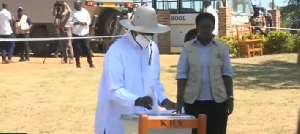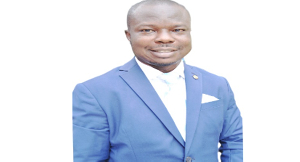Concerns are being raised over tariff increases announced by the Public Utilities Regulatory Commission (PURC) on Wednesday which saw the price of electricity surging by 78.9 percent and with water going up by 52 percent.
This had been met with stiff opposition from various civil society organizations, political groupings and ordinary Ghanaians, with some threatening to stage a protest march against the increases.
One of such bodies is the IMANI Centre for Policy and Education. According to the Executive Director, Franklin Cudjoe, “in the first place we shouldn’t have waited to pile up what looks like almost a 130 percent increase cumulatively onto the ordinary consumer.”
“Never again should it be a case that we’ve been asked to pay these monstrous sums,” he stated in an interview with DAILY GUIDE.
This, he said was because “once you pile taxes in bills like this, it obviously affects the pocket of Ghanaians” for which reason he said it was not prudent for the PURC to have made those increases.
“Ordinarily, there is nothing wrong in paying the bill; unfortunately, they’ve been piled up and I think the intervening years that we haven’t paid any bill, this is the result of it”, he noted while insisting “the PURC should be much more upstanding when it comes to the issue of tariffs because you can’t say that in a year so you won’t increase tariffs.”
“Much as you report to whoever appointed you, you’ve got to also ensure that you have a responsibility towards the citizenry. Bills are to be paid as and when they come; not piled up so that you then push them on consumers when they least are expecting,” he emphasized.
For him, the “PURC should be pushing for more proper transparent investment into the sectors, especially water and electricity so that we can have an expansion and increase access because as it is now even when we pay, we don’t necessarily see what quality investment will be made.”
He therefore stressed the need to invite private participants who could help expand the network in the two sectors.
Agitation
Acting Director of Communications of the opposition New Patriotic Party (NPP), Perry Okudzeto described the increment as “unacceptable; it is a drain on the meager resources that are paid to workers” and for which reason he said people should be encouraged not to pay.
“If we are in difficult times, we expect that these companies (referring to the Electricity Company of Ghana (ECG) and the Ghana Water Company (GWC) will cut down their expenditure; also treat themselves like we are in crisis so that we can save some money in order to produce power, water and distribute,” he said in an interview with the paper.
This, he said, was because “we have seen in reports especially the World Bank report that they did in June that if ECG is able to save up to 10 percent of the 24 percent of losses that they incur on the distribution lines alone, that alone can give them about $85million.”
“So why is it that ECG is not ready to sit down and find thinkers within their organizer who can think about the best way forward to manage the revenues that come in, to manage the resources of the company, to manage the power that it self-generates and distributes in order to make profit and not always run to the PURC to increase tariffs whenever they need help?” he asked rhetorically.
For him, the increment in workers’ salary by 10 percent was insignificant since it could not cushion the ordinary Ghanaian worker from the shocks of the utility price increases coupled with recent increase in petroleum prices which had affected transport fares.
Pressure group, Alliance for Accountable Governance (AFAG) equally also insists “there is no justification for increases in utility tariffs” since according to them, “Ghanaians have no value for money with regards to the provision of these services.”
In a statement issued in Accra yesterday, leadership of the group noted “this tariff increases will result in a consequential transmission effect.” “The rush in tariff increase is just a passing of the buck,” the statement said, insisting that “government has failed woefully to fight corruption, and as is the case, the good people of this country will continue to pay for the price of this financial mess.”
Impending Action
Leadership of AFAG stressed the belief that “it’s about time political parties stand up to the challenge of providing hope to the masses.”
They have since urged the New Patriotic Party (NPP), largest opposition party in the country to rally together all other political parties in opposition for mass actions that would drum home to government, the sad story of the ordinary Ghanaian.
For them, “the time is now that, opposition political parties must see eye to eye, and rise up to the plight of the ever suffering Ghanaian” since according to the group, “there is no hope for the Ghanaian.”
Apart from that, AFAG noted that “everyone is silent, the TUC is neglecting, and the government is not listening.”
They have therefore indicated their readiness to partner any individual or group of persons to chart any course that would bring economic freedom to the Ghanaian.
General News of Friday, 27 September 2013
Source: Daily Guide

